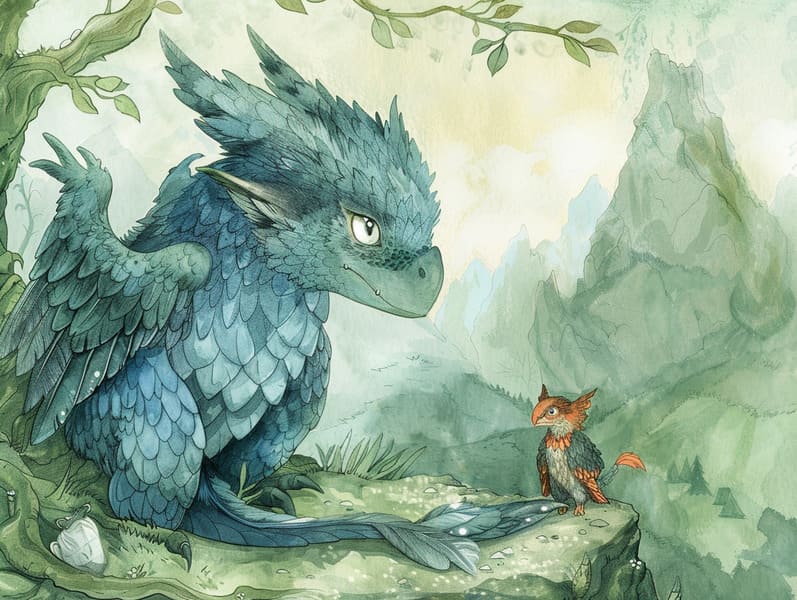Embracing the Enchantment of Nightfall Fairy Tales: Creating Valued Experiences with Kids
Embracing the Enchantment of Nightfall Fairy Tales: Creating Valued Experiences with Kids
Blog Article

The end of the day is a precious time for kids and their parents. It’s a opportunity to ease into rest, hug close, and revel in the wonder of stories.
For lifetimes, evening stories for little ones have been a adored habit, offering more than just a way to slumber. They provide an means for togetherness, development, and igniting fantasy.
Why Bedtime Stories are Important
Children's bedtime stories go beyond a way to finish the day. They play a significant role in a child’s maturation and in strengthening the guardian-child bond. Here’s why they are important:
1. Bonding Time: Sharing bedtime stories encourages a special bonding time between parents and children. It’s a moment of proximity that helps children feel valued and comforted.
2. Vocabulary Building: Absorbing tales helps children develop their language acquisition. They grasp new vocabulary, understand grammar, and enhance their auditory and interpretation abilities.
3. Imagination and Creativity: Kids' stories transport them to dreamy worlds, promoting fantasy. They envision characters, settings, and adventures, which stimulates their imagination.
4. Feeling Recognition: Kids' tales often depict characters facing challenges and sentiments. These accounts help kids handle and deal with their own reactions, developing emotional maturity.
5. Cognitive Development: Listening to a tale helps children develop mindfulness, retention, and thought processes. They improve to follow lines of thought, remember elements, and deduce results.
Adding Stories to Bedtime Routine
Establishing a bedtime habit that features reading stories out loud is easy and fulfilling. Here’s how to create a beloved part of your bedtime habit:
1. Pick a Cozy Area: Opt for a snug place where you and your child can cuddle without distractions. A relaxing bed or a snug reading nook works well.
2. Set a Consistent Time: Fix a routine time each night for bedtime stories. Predictability helps children predict and makes the practice more manageable.
3. Select Stories by Age: Find tales that match your child’s developmental stage. Young kids might be drawn to picture books with easy plots, while grown children may be drawn to detailed stories with more complex plots.
4. Get Involved with the Story: Make the tale be immersive by adding different accents and voices, adding noises, and asking your child to engage. Ask stuff about the story to involve them.
5. Create a Soothing Environment: Adjust the lights, use quiet tones, and create a calming environment to help your child relax.
Where to Find Bedtime Stories
There are many places where you can find perfect bedtime stories for children. Here are some suggestions to check out:
1. Children’s Books: Explore your local library or bookstore to find a broad selection of bedtime stories for kids. Going through the books together can be a entertaining activity that also permits children to find stories that appeal to them.
2. Web Resources: There are many internet sites that offer free bedtime stories. Sites like Storynory provide a variety of short stories for kids that you can read on screen. These websites are great for finding new and varied stories without expense.
3. Apps for Storytelling: For nights when you’re too drained to read, try audiobooks or storytelling apps. These can provide a soft-spoken reading to read your child a story, ensuring they still get their bedtime story fix. Apps often offer interactive features that can capture their attention further.
4. Personal Stories: Create your own stories reflecting your child’s interests. Personalized stories can be highly engaging and meaningful. bedtime stories for kids You can bring your child in the writing process, making them a part of the adventure.
Short Story Perks
Quick stories for bedtime are highly beneficial for bedtime. They provide all the good aspects of longer stories but are more to the point, making them perfect for relaxing before sleep. Here’s why short stories are a good choice:
1. Clear and Simple: Concise narratives are simple and easy for kids to get, even after a long day. They can readily grasp the line and enjoy the story without losing focus.
2. Instant Engagement: These stories immediately engage children, catching their attention and curiosity. This makes them great for keeping bedtime rituals easy yet enjoyable.
3. Variety and Flexibility: Quick stories give for variety in your bedtime stories. You can choose a different story each night, keeping the tradition engaging and exciting for your child.
4. Manages Time Well: For busy parents, brief tales are a time-saving way to confirm children still get their nightly dose of storytelling. They fit well into a busy schedule while still offering the full benefits of a bedtime story.
The Appeal of "Read Me a Story"
The simple phrase, “Read me something,” can reveal a world of magic for children. Agreeing to this request not only satisfies a child’s request for attention and engagement but also builds lasting moments. Here’s why it’s magical:
1. Attachment: Reading aloud to your child develops a deep emotional relationship. It’s a time for proximity, sharing, and bonding.
2. Legacy: Developing a bedtime story habit creates a prized tradition that children expect every night. It’s a habit that can be continued through generations.
3. Mutual Learning: As you tell tales, you’ll witness your child’s progress and progress. Their questions, reactions, and understanding of the stories grow, offering insights into their developing minds.
4. Safe Environment: Bedtime stories provide a safe space for children to deal with emotions, face fears, and find comfort in the reliable presence of a parent.
Summing Up
Kids’ bedtime stories are a effective tool for encouraging a child’s development and developing unforgettable times of closeness.